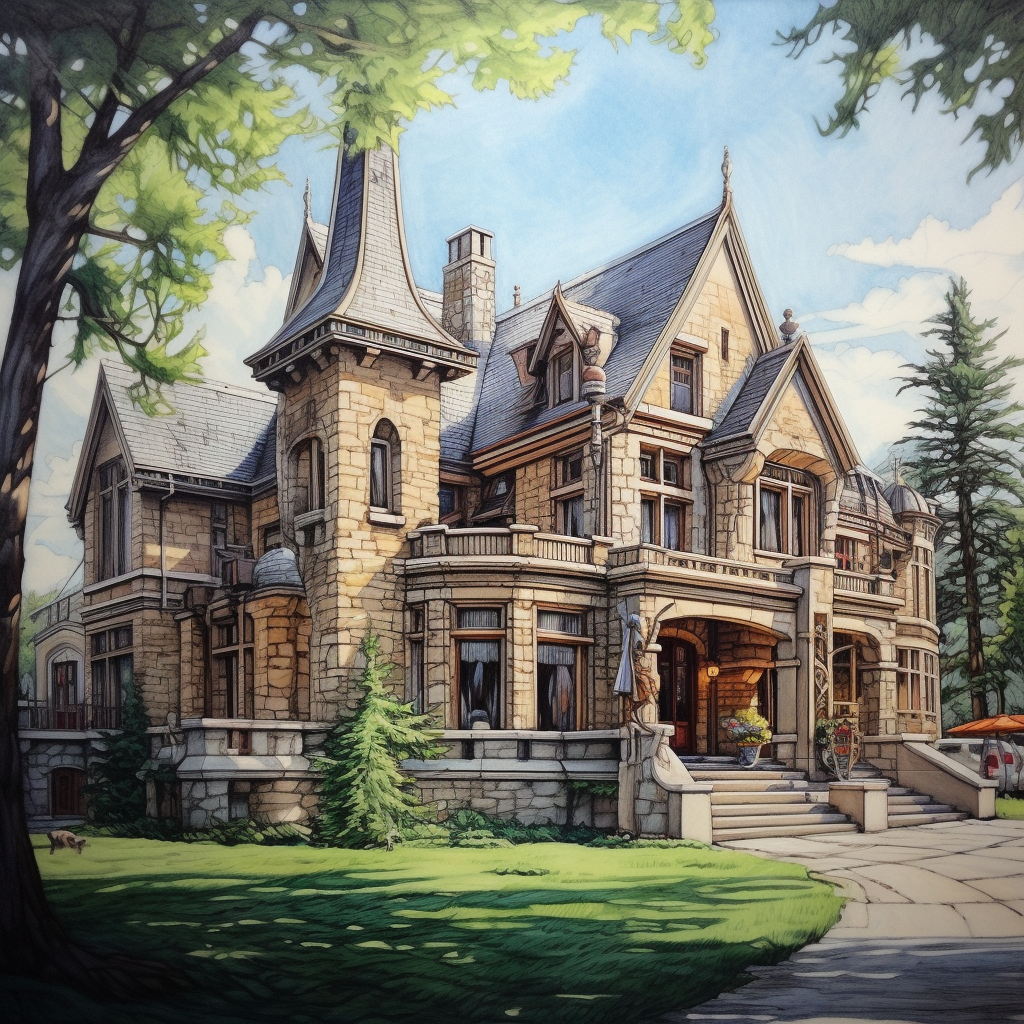
The Mansions in Our Hearts: A Revelation from John 14
October 22
In the Gospel of John, specifically chapters 13 and 14, Jesus imparts profound wisdom and guidance to his disciples concerning his imminent death, burial, and resurrection. A particular focus of contemplation is John 14:1-4, where Jesus talks about his Father's house, the many rooms, and the promise of returning to take his disciples to himself (John 14:1-4).
In John 14:1-4, Jesus says, "Let not your hearts be troubled. Believe in God; believe also in me. In my Father's house are many rooms. If it were not so, would I have told you that I go to prepare a place for you? And if I go and prepare a place for you, I will come again and will take you to myself, that where I am you may be also. And you know the way to where I am going."Traditionally, many have interpreted these verses as a reference to the afterlife. The idea being that when believers die, they leave their earthly existence to be with Jesus, who has prepared heavenly dwellings for them. This interpretation holds merit, but a deeper understanding suggests that Jesus isn't solely referring to an afterlife destination.
Upon deeper reflection, it becomes evident that Jesus is alluding to the necessity of his own crucifixion, resurrection, and ascension to the Father. Before these pivotal events, there wasn't a way to bridge the gap between humanity and God. This was a divine completion, a spiritual bridge connecting God with humanity. In John 14:6, Jesus asserts, "I am the way, and the truth, and the life. No one comes to the Father except through me" (John 14:6). In this statement, Jesus reveals that he is the means by which individuals can access the presence of the Father and receive His Spirit.
Jesus, often described as a carpenter, not only prepared physical structures but also a spiritual dwelling place. The temple of God, symbolized as mansions, isn't a physical building but rather resides within the hearts of those who receive Jesus as their Lord and Savior. This concept echoes 1 Corinthians 6:19-20, which states, "Or do you not know that your body is a temple of the Holy Spirit within you, whom you have from God? You are not your own, for you were bought with a price. So glorify God in your body" (1 Corinthians 6:19-20). In John 14:23, Jesus elucidates this further: "If anyone loves me, he will keep my word, and my Father will love him, and we will come to him and make our home with him" (John 14:23). The promise of God making His home within those who love and obey Him is a testament to the spiritual dwelling place in the hearts of believers.
This concept is a departure from the conventional notion that mansions are only for the hereafter. Rather, these dwellings are available to believers here and now. When Jesus said He was going to prepare a place, He was referring to the here and now too, His death, resurrection, and ascension, which paved the way for believers to receive the Holy Spirit and become the dwelling place of God. The Holy Spirit, as described in John 14:16-17, is the Helper and the Spirit of Truth, who dwells within believers. Jesus assures that He will not leave His followers as orphans, for through the Holy Spirit, they will experience the intimate presence of God (John 14:16-17).
As believers surrender themselves to Jesus as their Lord and Savior, they become repositories of the Word of God, as stated in John 14:23. This is a transformative process where their hearts become the dwelling place for the Father, the Son (Jesus Christ), and the Holy Spirit. The unity of the triune Godhead makes its home within the hearts of believers, who consequently become the dwelling place of God, representing, I believe, the mansions Jesus spoke of.
This divine habitation is not a distant future prospect only, but a present reality. Believers have the privilege of experiencing the presence of God within them. This concept closely aligns with Jesus' words in Revelation 3:20: "Behold, I stand at the door and knock. If anyone hears my voice and opens the door, I will come in to him and eat with him, and he with me" (Revelation 3:20). When believers open the door of their hearts to Jesus, He enters, not as a temporary guest but as a permanent resident. Their hearts become His home, and collectively, the body of believers forms a spiritual mansion, the temple of God.
In addition to being the dwelling place of God, believers are also called to manifest the works of God. In John 14, Jesus mentions both the Word and the works. Just as Jesus performed miracles, healings, and cast out demons, believers, filled with the Word of God, can partake in these miraculous works. In fact, Jesus promises that they will do even greater works than He did because He goes to the Father (John 14:12). This promise isn't confined to a future time in heaven but pertains to believers' lives on earth. By dwelling in God and having God dwell within them, they become instruments through which God's power and love are displayed.
In conclusion, the notion of mansions in John 14 takes on a profound and transformative meaning. These mansions are not simply a destination in the afterlife but represent the dwelling place of God within the hearts of believers. As believers open their hearts to Jesus, they become the temple of God, where the Father, the Son (Jesus Christ), and the Holy Spirit make their home. This divine habitation empowers believers to manifest the works of God on earth, continuing the ministry of Jesus and doing even greater works. Therefore, the mansions that Jesus promised are not only a distant future hope but a present reality for all who receive Him as their Lord and Savior.
.
Copyright ©️ 2023 sellcasa.com